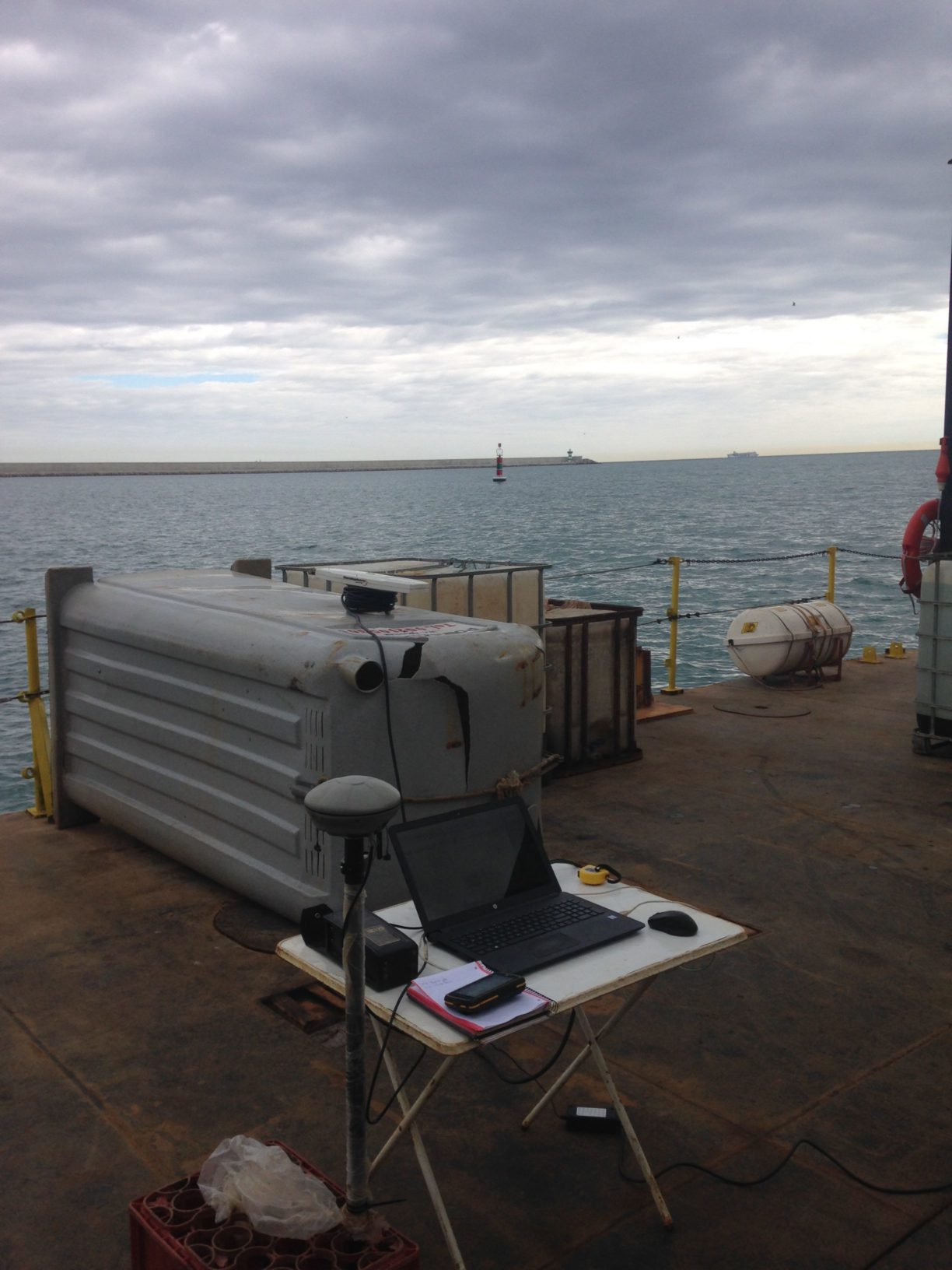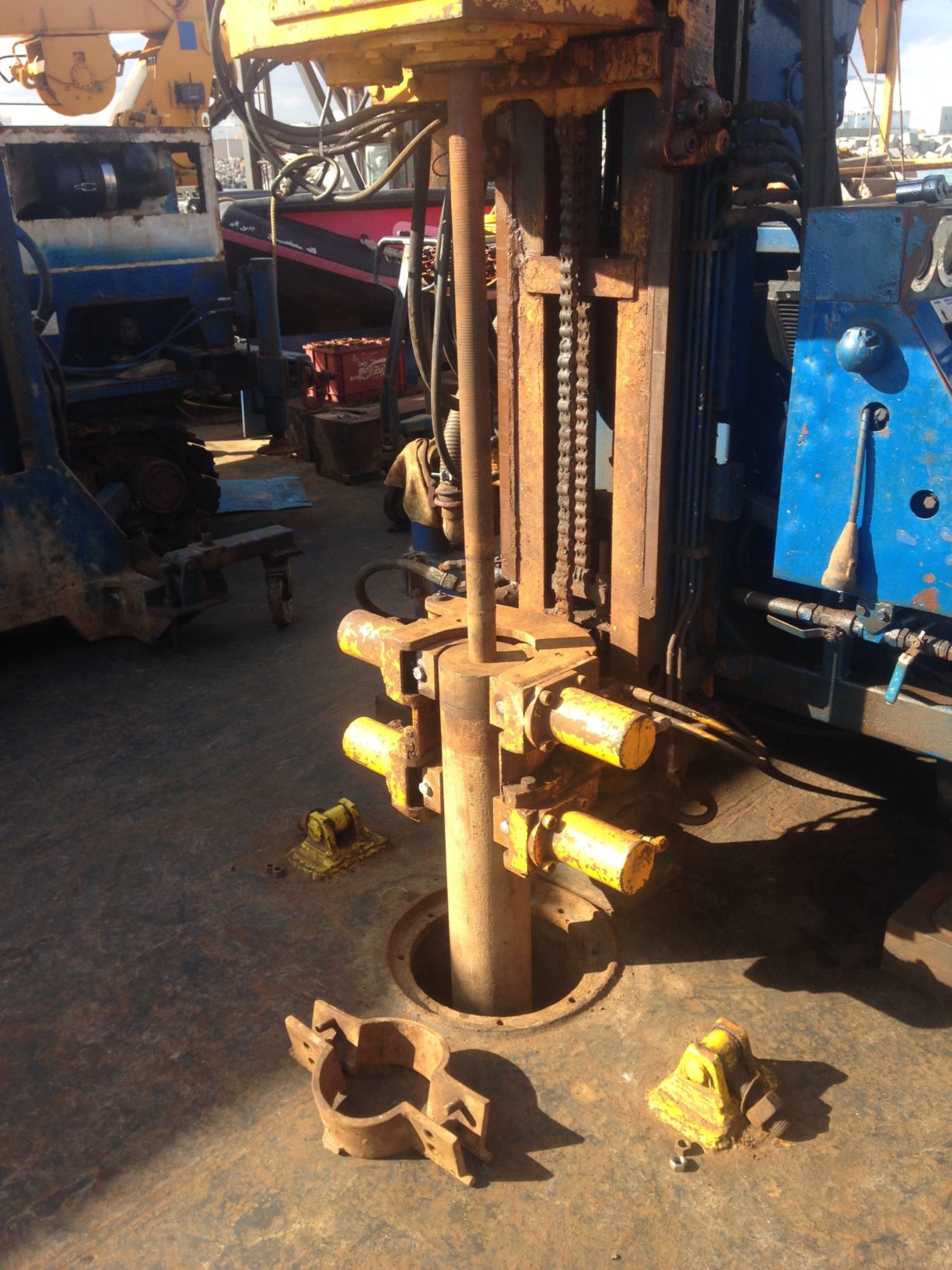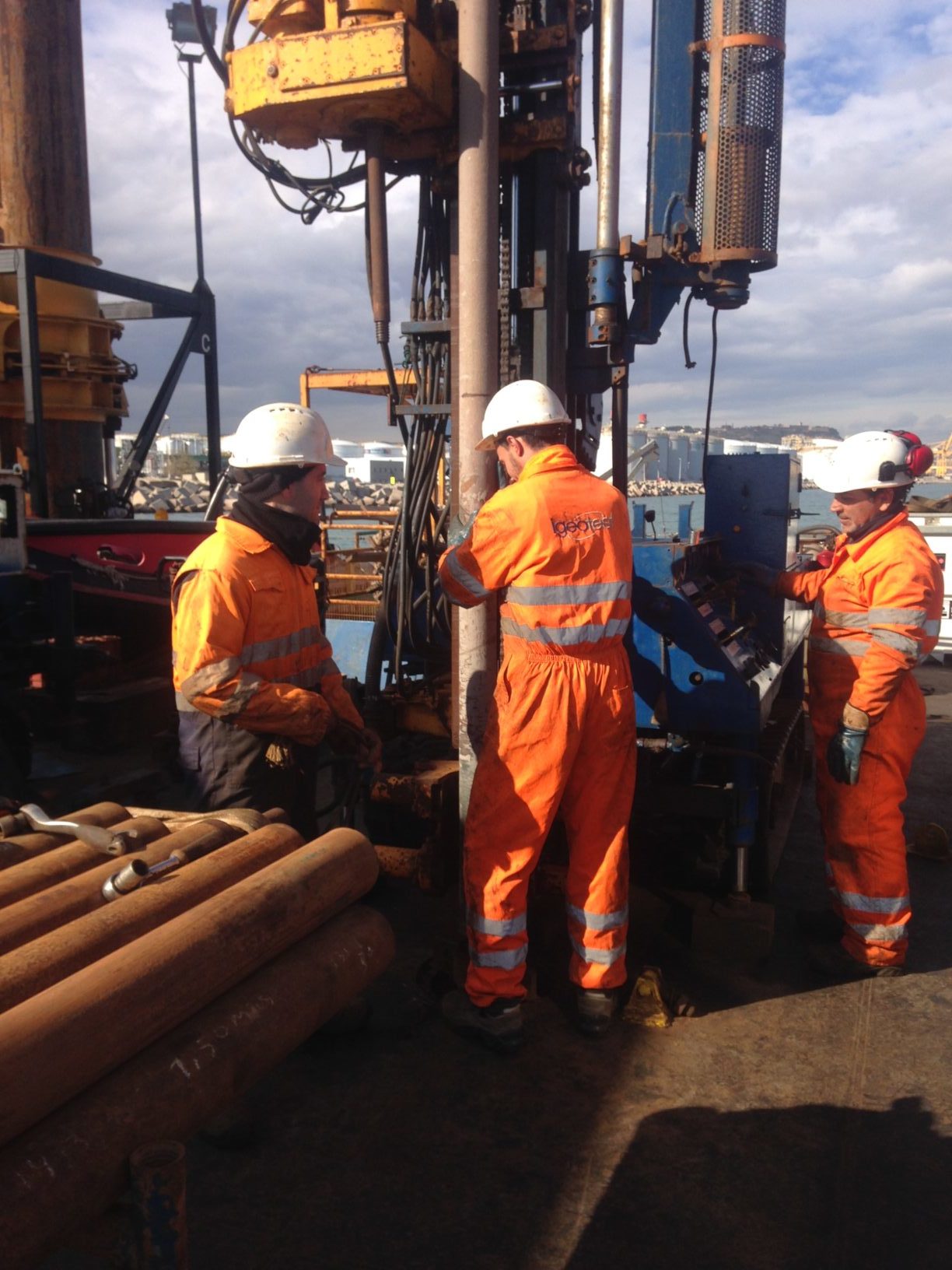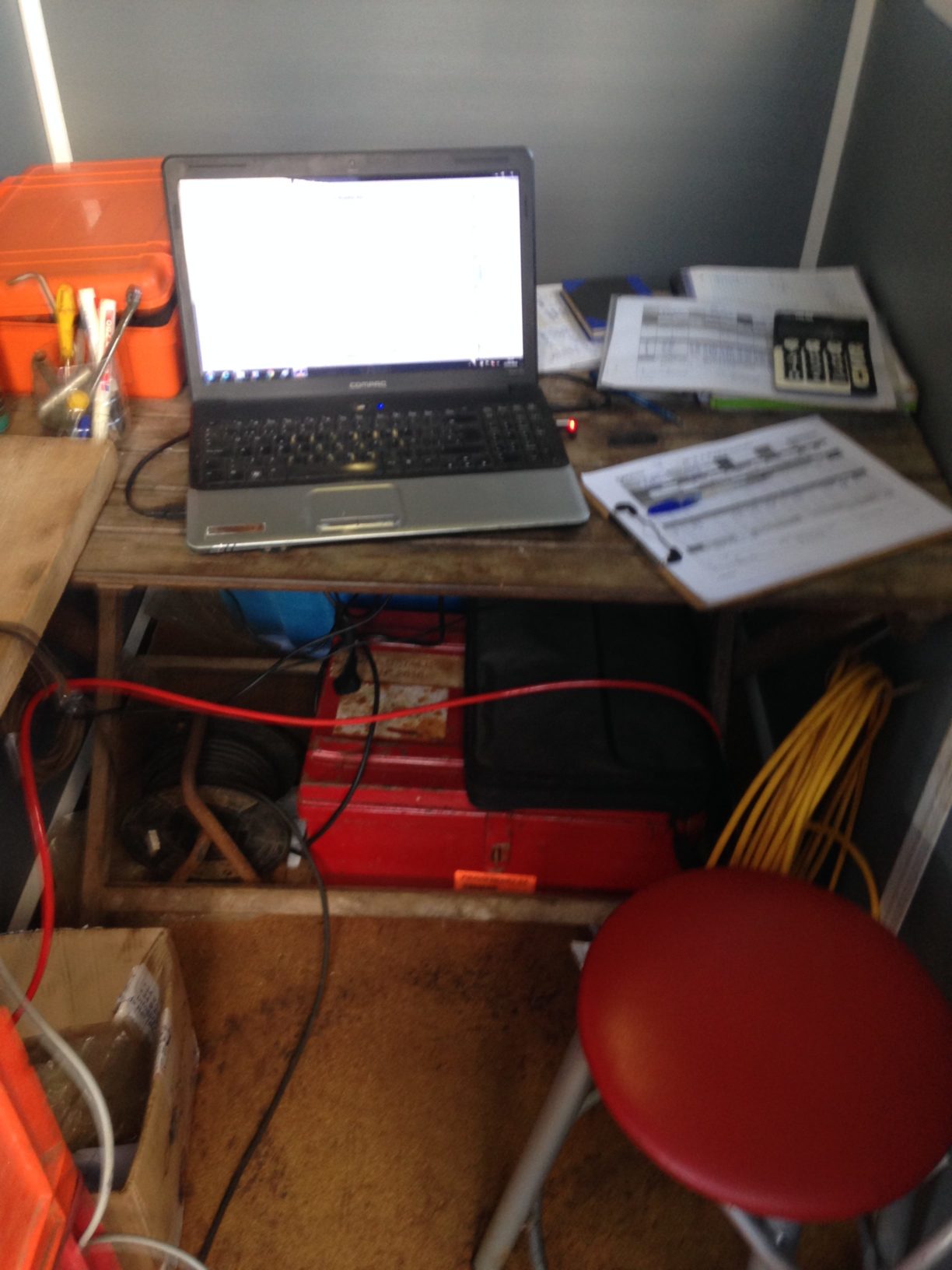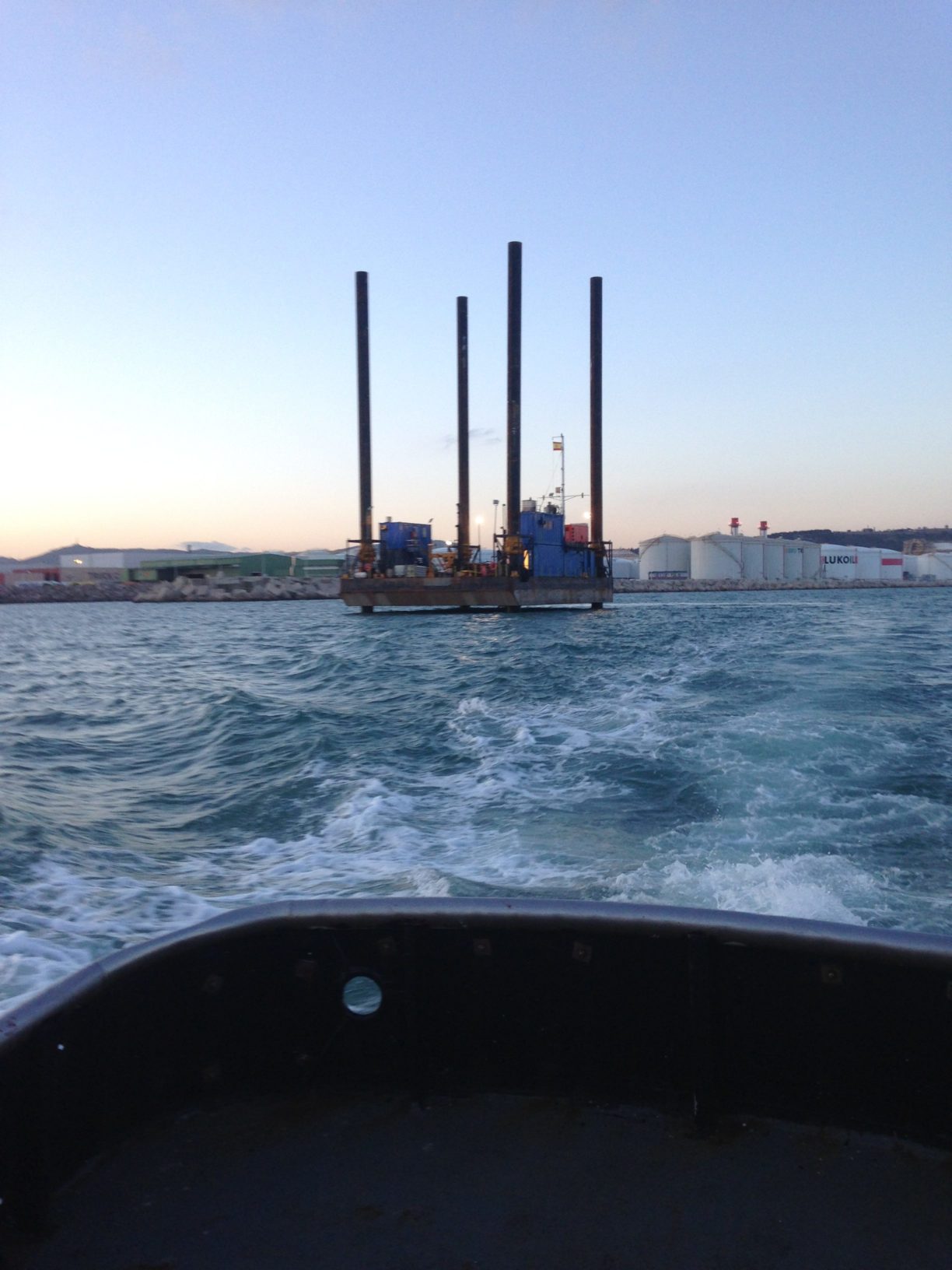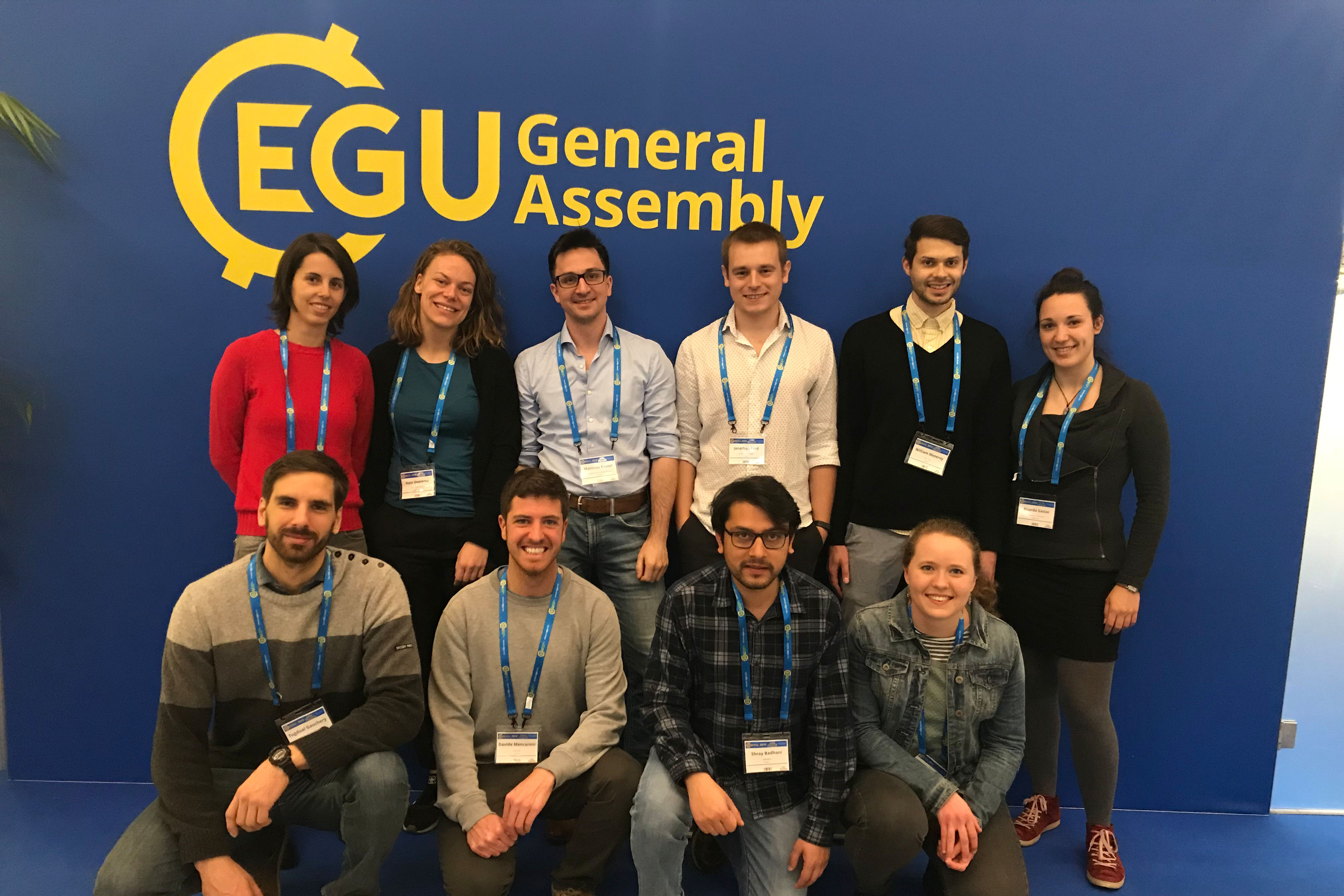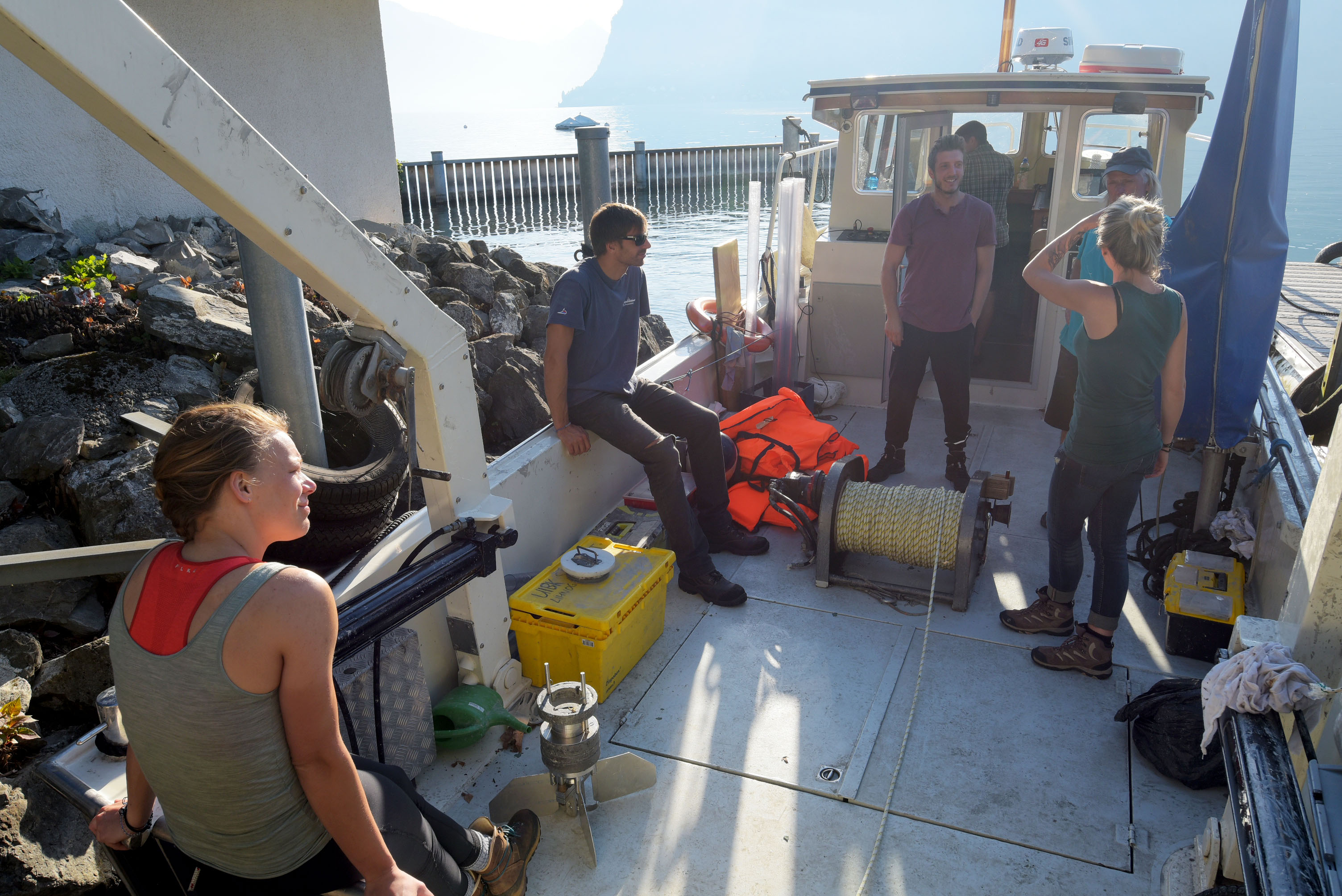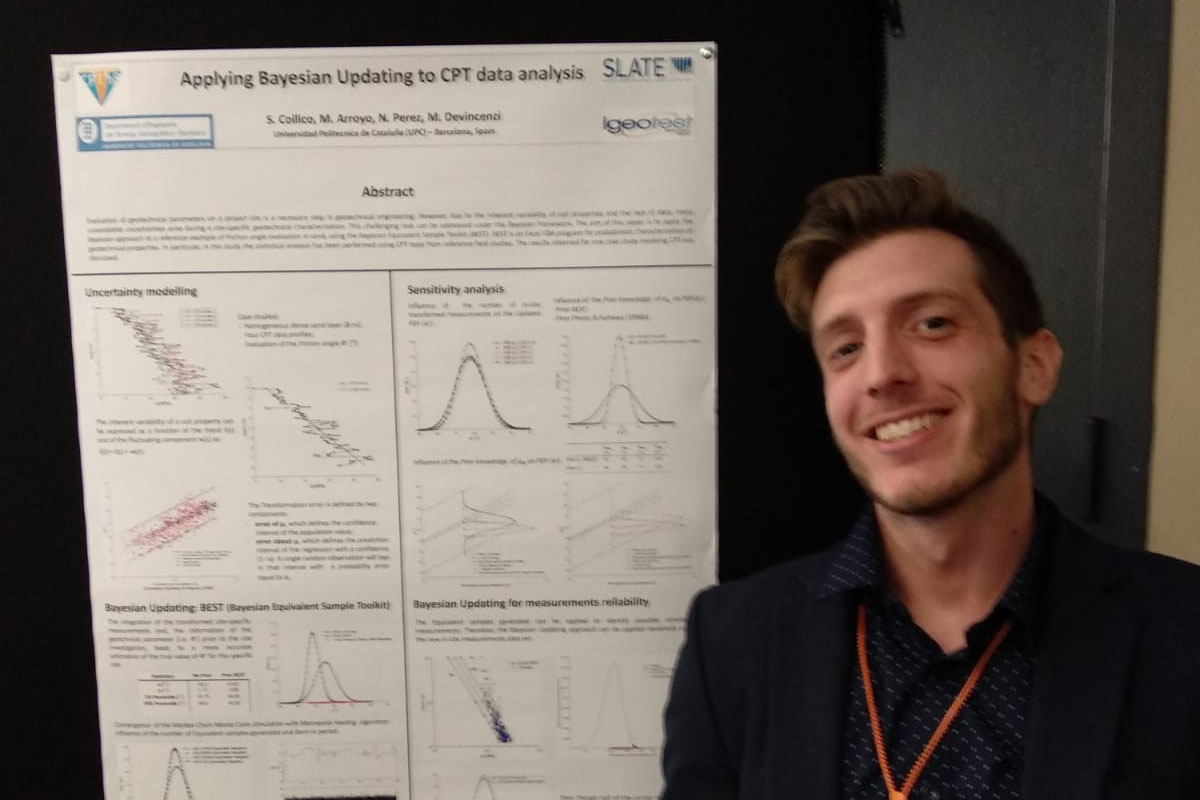
Optimal characterization of marine sediments for submarine landslide investigation
Stefano Collico | Igeotest
Research
The main topic of the ESR8 project in the context of Submarine Landslide and Their impact on the European continental margin (SLATE project) is to optimize the characterization of marine sediments through statistical analysis. Different statistical approaches will be adopted for this purpose starting from the Bayesian inference. Since the characterization of the marine sediments is a wide general topic, the following points provide a general guideline of my work:
- Bayesian techniques;
- Bayesian techniques for empirical correlation
- Bayesian techniques for stratigraphic delineation;
- Bayesian Back Analysis in slope stability studies;
- Bayesian techniques in slope hazard mapping
Therefore, the Bayesian method applied to the geotechnical field is the main goal of this project, nevertheless several different statistical approaches have to be employed and considered in the first point to better success in the project. Each point will be mainly carried out using data provide by IGEOTEST S.L., partner of the SLATE project and other partners (i.e. CSIC, NGI).
The first out of the four goals is aim to reduce the uncertainty in the prediction of geotechnical design parameters and soil properties starting from general empirical correlations. In particular this goal will be accomplished working on data obtained from a geotechnical campaign performed this year, by IGEOTEST S.L., at the Barcelona’s harbor in which the ESR8 student has taken part. During this campaign, tests such as CPTu, DTM, Boreholes, were performed at different location. The active attendance of the ESR student at this campaign is aim to learn the complete procedure of submarine tests and to understand how the Data are processed and converted for the design used. This work will be performed using software such as Matlab, R and Openbugs.
For what concern the Bayesian technique in slope hazard mapping instead, the ESR8 student during June and July 2018, will collaborate with CSIC (Barcelona) in order to develop a statistical slope stability hazard mapping of the gulf of Cadiz, subsequently integrated with tsumani risk generation. Such work will be carried out in collaboration with the students ESR6 and ESR12 using geophysical data and geological maps provide by CSIC.
- Norma Pérez (IGEOTEST)
TEAM
NEWS
2019
@ Vienna, Austria (07 – 12 April 2019)
Conferences, ESR 1, ESR 12, ESR 13, ESR 14, ESR 15, ESR 2, ESR 3, ESR 4, ESR 5, ESR 6, ESR 7, ESR 8, ESR 9, News
ESRs share their experience at the EGU General Assembly 2019 hosted in Vienna, Austria. Posters, oral presentations, PICOs and much more.
2018
why do we actually meet?
ESR 5, ESR 8, News
What happens behind the curtain at an annual SLATE workshop? Starting off a series of blog posts on the recent gathering at Lake Lucerne, Kate (ESR5) and Stefano (ESR8) not only provide insight regarding the scientific activities, but as well point out additional benefits of such an event for the ESR students.
@ Delft, the Netherlands (21-22 June 2018)
Conferences, ESR 8, News
Stefano recently attended the 4th International Symposium on Cone Penetration Testing (CPT18) at Delft University of Technology in the Netherlands. Here he is sharing a review about the conference in general and his scientific contribution to this event, an application of the Bayesian approach to the friction angle evaluation in sand!


